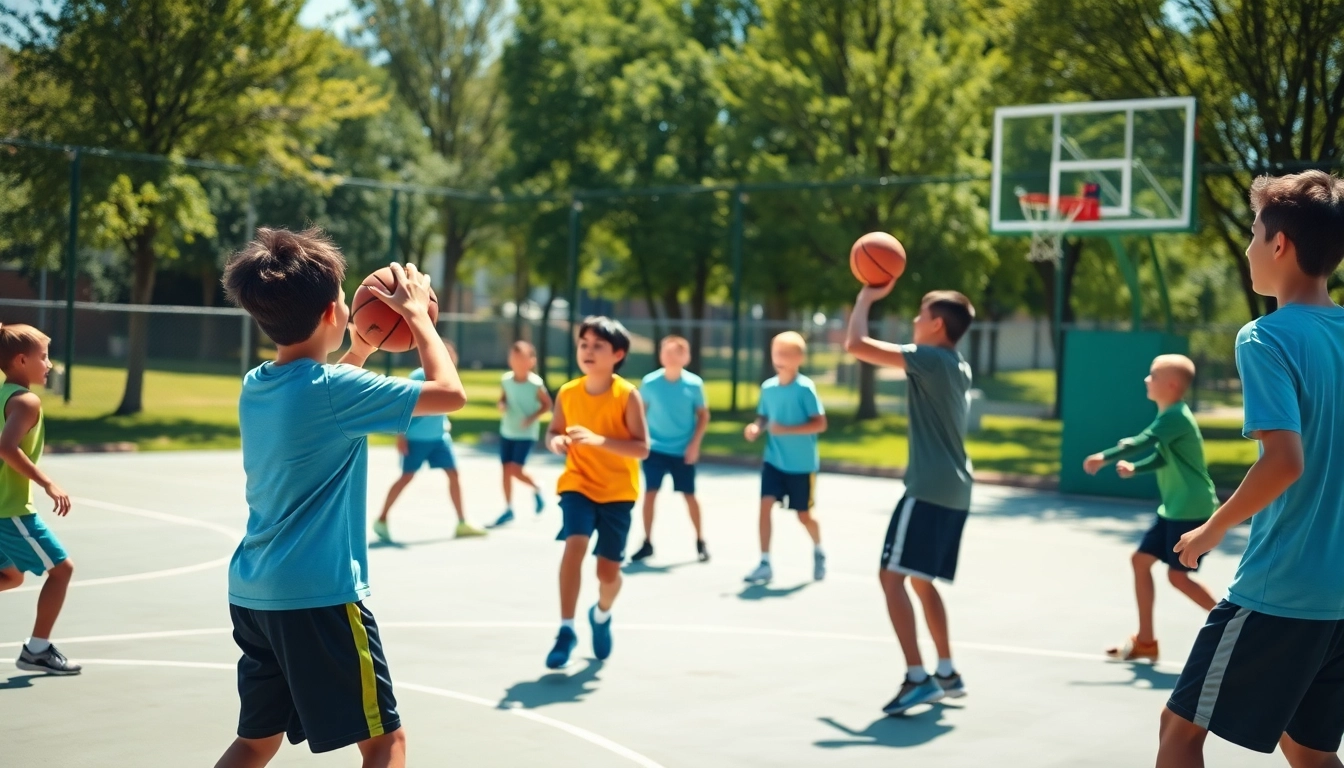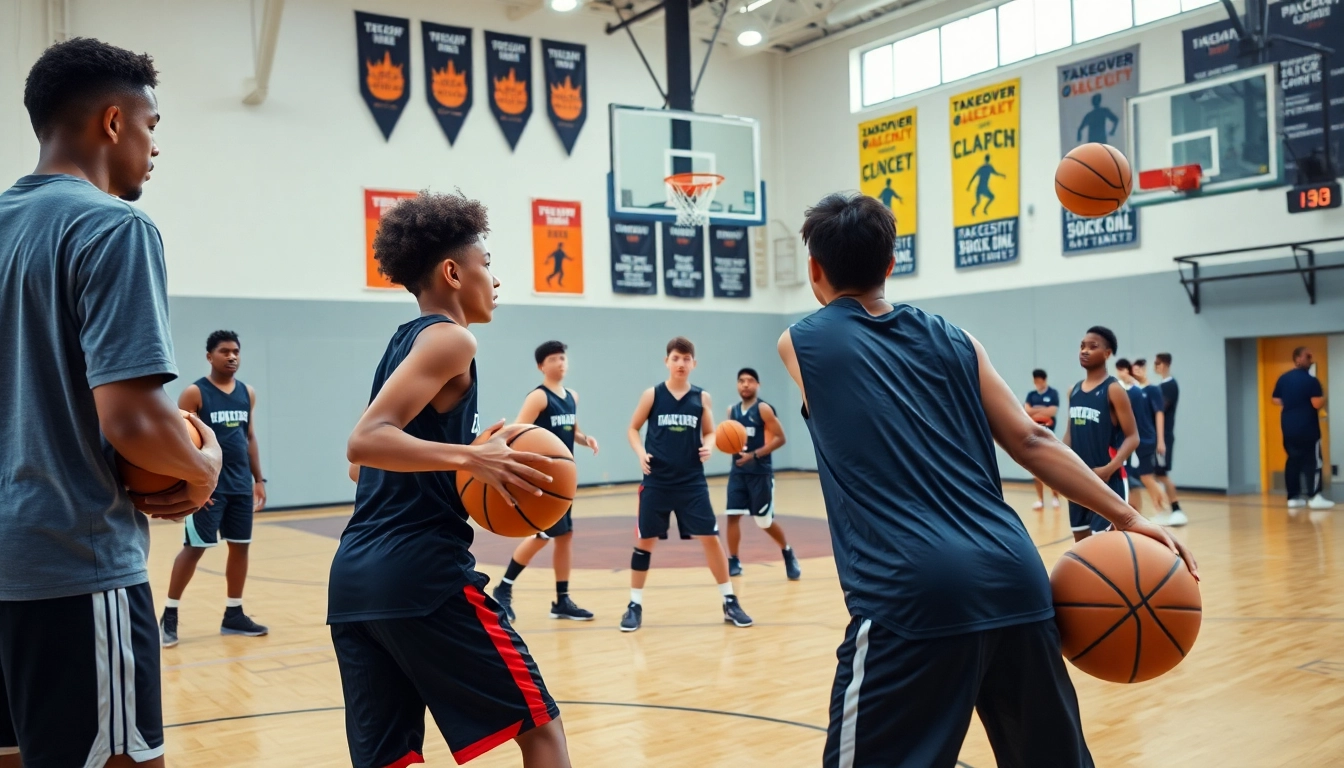Understanding Basketball Training Programs Near Me
When searching for basketball training programs near me, you may feel overwhelmed by the options available. Whether you are a novice looking to learn basic skills or an experienced player aiming to refine your game further, it is essential to understand what makes a basketball training program effective. In this guide, we’ll explore critical aspects of these programs, highlight the benefits of local coaching, and provide you with a pathway to identify the right facility for your needs.
What to Look for in a Program
Choosing the right basketball training program involves consideration of several critical factors:
- Qualified Coaching Staff: Ensure that trainers possess experience in coaching basketball, ideally with a background in competitive play or education in sports science.
- Focused Curriculum: Look for a program that emphasizes skill development in areas such as shooting, dribbling, defense, and teamwork. Programs that offer structured progression tend to be more effective.
- Facility Access: Assess the quality of training facilities, including the condition of the courts and available training equipment. Good facilities can significantly impact training outcomes.
- Player-to-Coach Ratio: A lower ratio allows for more personalized instruction and feedback, ensuring that each player receives adequate attention during training sessions.
- Flexibility in Scheduling: Look for programs that offer flexible timings, allowing you to train around other commitments such as school or work.
Key Benefits of Local Coaching
Participating in basketball training programs nearby can bring multiple advantages:
- Convenience: Local programs save time on travel, which can be vital for maintaining a consistent training schedule.
- Community Engagement: Local training fosters a sense of community among players, which can enhance motivation and make practices more enjoyable.
- Culturally Relevant Training: Local coaches may have a better understanding of the specific challenges and dynamics of players within that area, leading to more effective training strategies.
- Networking Opportunities: Training with local coaches and players can open doors to community leagues and collegiate programs, which are often integral for serious athletes.
How to Choose the Right Facility
Choosing the right training facility is crucial to maximizing your basketball skills. Here are some key elements to evaluate:
- Visit the Facility: If possible, attend a session to assess the environment firsthand. Look for cleanliness, safety, and whether it fosters an atmosphere conducive to learning.
- Ask about Equipment: Modern training facilities should offer various basketball training aids such as shooting machines, agility ladders, and strength training equipment.
- Check for Testimonials: Seek feedback from current or past participants to gain insight into the effectiveness of the training program and coaching methodologies.
- Evaluate Training Costs: Consider the pricing structure and whether the facility provides value for money. Look for programs that offer packages for multiple sessions to reduce per-session costs.
- Look for Special Offers: Many facilities will offer introductory sessions or trial periods. Utilize these to get a feel for the coaching style and curriculum without a significant financial commitment.
Types of Basketball Training Programs Available
Individual Skills Training
Individual skills training is highly personalized and focuses on specific areas where a player needs improvement. This type of training often includes:
- Shooting Drills: Players engage in shooting form exercises that emphasize footwork, proper mechanics, and shot selection.
- Ball Handling: These drills isolate ball handling skills, helping players improve their dribbling under pressure and with both hands.
- Defensive Techniques: Defensive training encompasses drills that improve foot speed, lateral movement, and proper positioning.
- Strength and Conditioning: Physical training that includes specific exercises tailored to enhance a player’s overall athleticism can improve performance on the court.
Group Classes and Team Training
Group classes provide an excellent opportunity for players to learn and practice skills in a collaborative environment. Benefits include:
- Competitive Drills: Engaging in drills with other players creates a competitive atmosphere, pushing individuals to harness their skills effectively.
- Team Dynamics: Group training allows players to develop their basketball IQ by learning how to work within team structures, understanding roles, and practicing communication.
- Social Elements: These classes foster friendships and camaraderie, which can further drive motivation.
- Cost-Effective: Group training is often more affordable than individual sessions, making it a practical choice for many players.
Seasonal Camps and Clinics
Seasonal camps and clinics are focused training programs designed to develop specific skills over a set period, often during school breaks. These programs usually offer:
- Length of Training: Camps may last from a few days to several weeks, providing intense training that can lead to significant improvement.
- Specialized Focus: Many camps concentrate on particular skills, such as shooting or defense, or cater to specific age groups.
- Top-Level Coaching: Camps often feature experienced coaches and professional players, exposing attendees to new techniques and strategies.
- Games and Competitions: Participants frequently have opportunities to apply their new skills in game situations, providing valuable game experience.
Measuring Your Progress in Training
Setting Personal Goals
To truly benefit from your basketball training program, it’s essential to set personal goals that are both realistic and measurable. Consider the following tips:
- SMART Goals: Set Specific, Measurable, Achievable, Relevant, and Time-bound goals to provide clarity in your training objectives.
- Short and Long-term Goals: Break down your objectives into short-term targets (e.g., improving free throw percentage) and long-term aspirations (e.g., making the varsity team).
- Regularly Review Goals: Continuously revise your goals based on your progress to keep your training aligned with your ambition.
Tracking Performance Metrics
To measure the effectiveness of your training program, establishing performance metrics is vital:
- Skill Assessment: Regular skill assessments let you track specific skills, such as shooting percentages, rebounds, and assists.
- Fitness Benchmarking: Evaluate your physical conditioning through tests measuring speed, agility, and endurance at regular intervals during your training.
- Game Performance Stats: Keep comprehensive statistics on your performance during games to monitor progress over time and identify strengths and weaknesses.
Utilizing Feedback from Coaches
Feedback is an invaluable component of the learning process. Here’s how to make the most of it:
- Request Regular Feedback: Don’t hesitate to ask your coaches for constructive feedback on your performance, drills, and overall growth.
- Incorporate Feedback: Apply the insights and advice provided by your coach into your training regimen to maximize improvement.
- Peer Reviews: Sharing opinions with teammates can help you understand different perspectives and can lead to valuable insights.
Local Resources for Basketball Training
Top-Rated Facilities and Academies
With an increasing interest in basketball training, several facilities are recognized for their quality coaching and successful programs. Some of the top-rated facilities across various regions include:
- Sanford Sports Academy, Sioux Falls: Known for programs tailored to players of all ages, they emphasize skill development and athlete’s full potential.
- M14Hoops, Murfreesboro: Offers private training and workout plans combined with team-based instruction to maximize the effectiveness.
- Hoop Dreams, Lexington: Focuses on youth with free introductory classes, helping players transition to more advanced training effectively.
- Evolution Basketball Training, Virginia and Maryland: Provides a year-round training environment, emphasizing both skills and strategy development.
Community Programs and Leagues
Many communities offer basketball programs tailored for various age groups, often at little to no cost. Potential options include:
- Local Parks and Recreation Departments: Most local government bodies have organized teams and leagues that encourage youth to develop skills in a fun and supportive environment.
- Community Centers: These centers may offer training clinics, leagues, and summer camps focused on youth development and introducing children to organized sports.
- AAU Leagues: Amateur Athletic Union (AAU) offers competitive basketball opportunities, providing players exposure to higher levels of competition.
Online Resources and Training Videos
In addition to physical training programs, numerous online resources can supplement your training at home. Some recommendations include:
- Training Apps: Several mobile apps deliver tailored workout plans, skill development exercises, and track progress over time, making training flexible and accessible.
- YouTube Channels: Video tutorials from professional trainers offer insights into skills, drills, and techniques that can be practiced individually.
- Online Forums/Communities: Engaging in basketball communities online can provide motivation, advice, and tips from experienced players and coaches.
Success Stories from Players Nearby
Inspirational Case Studies
Real-life case studies of players who have grown through basketball training programs serve as powerful motivators. For example:
- Jane Doe: A local player who joined a summer clinic improved from a benchwarmer to the starting lineup on her high school varsity team in just one season, demonstrating the impact of dedicated training.
- John Smith: Having trained for two years at M14Hoops, John can now consistently score above 20 points per game, receiving attention from college scouts.
Interviews with Coaches and Trainers
Insights from experienced coaches shed light on how their programs help youth develop skills. One coach shared:
“Our main goal is to instill confidence in our players. When they see that they can achieve specific skills through hard work, it drives them to push further.”
How Training Transformed Players’ Games
Training can transform not just a player’s ability but also their mental approach to the game. Testimonials frequently highlight growth in:
- Skill Mastery: Players consistently report mastering shooting techniques and enhancing physical fitness, which aids in match performance.
- Mental Toughness: Overcoming challenges faced during rigorous training fosters resilience, which is crucial during competitive scenarios.
- Team Dynamics: Many athletes express that training environments improved their communication and teamwork skills, translating directly to better in-game collaboration.



